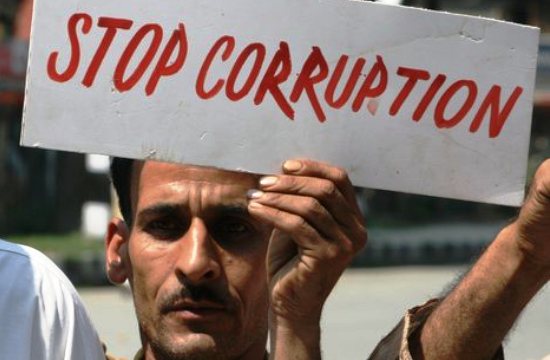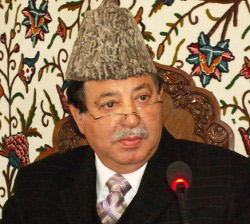 [stextbox id=”info”]Last week the government forced 13 corrupt officials into premature retirement. But a look at the recent history of pervasive and systemic corruption at the top reveals how the numbing practice has for decades been used to stabilize the power structure with successive state governments revealing themselves as ‘Houses of Equals’ in the game. A KASHMIR LIFE report.[/stextbox]
[stextbox id=”info”]Last week the government forced 13 corrupt officials into premature retirement. But a look at the recent history of pervasive and systemic corruption at the top reveals how the numbing practice has for decades been used to stabilize the power structure with successive state governments revealing themselves as ‘Houses of Equals’ in the game. A KASHMIR LIFE report.[/stextbox]
It is telling. The one thing that has stopped surprising an average citizen in Jammu and Kashmir is an expose’ of any instance, big or small, of corruption at any level in the government. It is not surprising in a state where 63 percent of the residents living under the official poverty line in its capital city of Srinagar have to bribe government officials, according to the latest survey by Transparency International.
But what has remained of constant interest for most people here, both inside the government and outside of it, is how the government or the establishment deals with cases of clear and established malpractices, and when it chooses to do so. Sometimes, the government under pressure to reclaim some lost credibility, with that commodity being in perpetual flux, deals with certain prima facie instances of corruption at the lower levels with a firm hand and in a terminal manner. Like, the incumbent government did recently when some 13 officials, a middle rung engineer being the highest rank among them, were sent out of service.
It is not possible to criticize this government action, but it helps to locate it in the overall history and scenario of corruption in the state that received a dubious distinction not so long ago (by Transparency International) of being the second most corrupt state in India.
The most recent example of corruption right at the top inside the government is the clear indictment by the police’s Crime Branch of no less than an education minister, Peerzada Mohammad Sayeed, who has since been divested of that portfolio. But just that much action against him andhe remains a cabinet minister dealing with the portfolio of Public Enterprises. By this logic it would have been enough to transfer the recently jettisoned lower rung corrupt officials into some other government departments. This differential in action against corruption at different levels begs an examination that reveals that successive governments in the state have been houses of equals in the matter with the kettle becoming a pot when in power and vice’ versa.

In the wake of the indictment the education minister ‘resigned’ which ironically was not accepted. The fact that he was divested of the education portfolio is enough proof that he was protected by some ‘higher’ interest. “It looked ironically cruel that a teacher should be removed from service in the name of toning up administration at a time when education minister’s involvement in the examination scam has been established beyond doubt and the system based on political expediency not able to do anything,” said PDP president Mehbooba Mufti.
While the forcibly retired officials were the third group to have been axed by the government using a legal instrument available to it, the system of dealing with corruption cases involving the high and mighty, like ministers and powerful bureaucrats, has been transformed into an akhada for balancing power within the system of governance or the establishment.
On the paper, the state has a very harsh anti-corruption mechanism. A fully fledged police department, the State Vigilance Organization (SVO)is meant as the main anticorruption watchdog. The former chief minister Mufti Sayeed set up the State Accountability Commission (SAC) to deal with corruption in politics. Yet another chief minister, Ghulam Nabi Azad enacted a law that paved way for the state government to takeover the properties attained with corruption money. The incumbent top man Omar Abdullah has set up State Vigilance Commission (SVC) but it is headless. Last reports say that one may soon be found a long list 20 probable’s.
However, there is all likelihood that a robust anti-corruption system free of political interference may be a pipe dream given the unimpressive working record of all the previous institutions. Tariq Naqsh badi, a retired presiding officer of oneof the two anti-corruption courts in the state says every anti corruption move has crippling loopholes. The state, he says, is the only Indianstate that has resisted fast track anti corruption courts.















